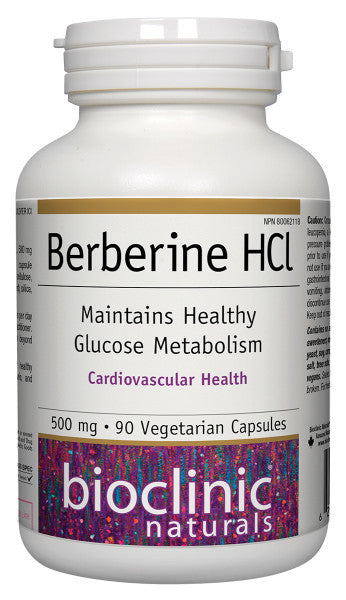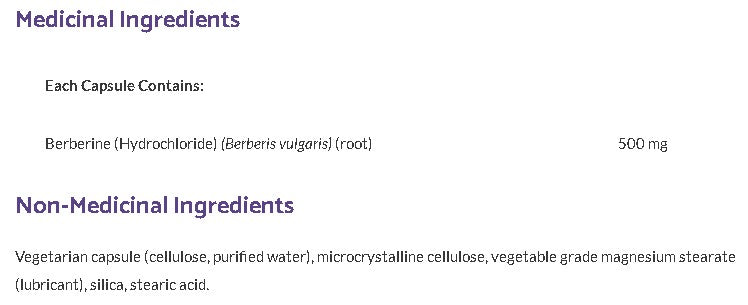



Berberine HCl 500 mg
- 35.99$
0.00$- 35.99$
- Unit price
- per
Description
x- Provides 500 mg of berberine hydrochloride per capsule, the dose used in clinical trials for glucose and lipid control.
- Hypoglycemic effects through multiple mechanisms, including improved insulin sensitivity
- Favorable effects on blood lipids, including a reduction in triglycerides and total and LDL cholesterol 9
- Activation of Nrf-2, a key regulator of antioxidant gene transcription and prevention of glucose-induced neurotoxicity.
- Berberis vulgaris (European barberry) extract
- Suitable for vegetarians/vegans
Traditionally used for gastrointestinal symptoms, berberine has emerged as a potent cardiometabolic adjuvant with diverse benefits and mechanisms of action. It has hypoglycemic effects, via inhibition of alpha-glucosidase activity and an increase in insulin receptors in peripheral tissues, thereby improving insulin sensitivity. In addition, it activates Nrf2, a key regulator of cellular antioxidant defense, and attenuates glucose-induced neurotoxicity, suggesting therapeutic potential for diabetic neuropathy.
In controlled trials, it reduced HbA1c levels in diabetic participants with comparable efficacy to metformin. In participants with metabolic syndrome, it was shown to reduce waist circumference and body weight, blood pressure, triglycerides, and improve insulin resistance compared to placebo, with similar benefits in women with PCOS. Berberine targets multiple cardiometabolic risk factors, as it has also been shown to reduce total cholesterol and LDL cholesterol in diabetic participants in several controlled trials. In addition, a clinical trial comparing standard therapy with or without berberine in patients undergoing percutaneous coronary intervention showed improvements in several inflammatory markers, including C-reactive protein, IL-6, MMP-9, ICAM-1, and VCAM-1.
Produits recommandés
Produits récemment consultés
- Choosing a selection results in a full page refresh.



